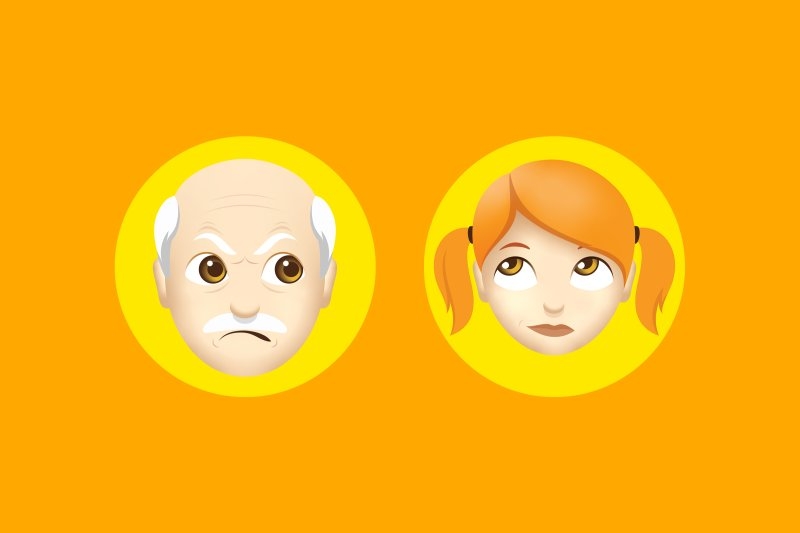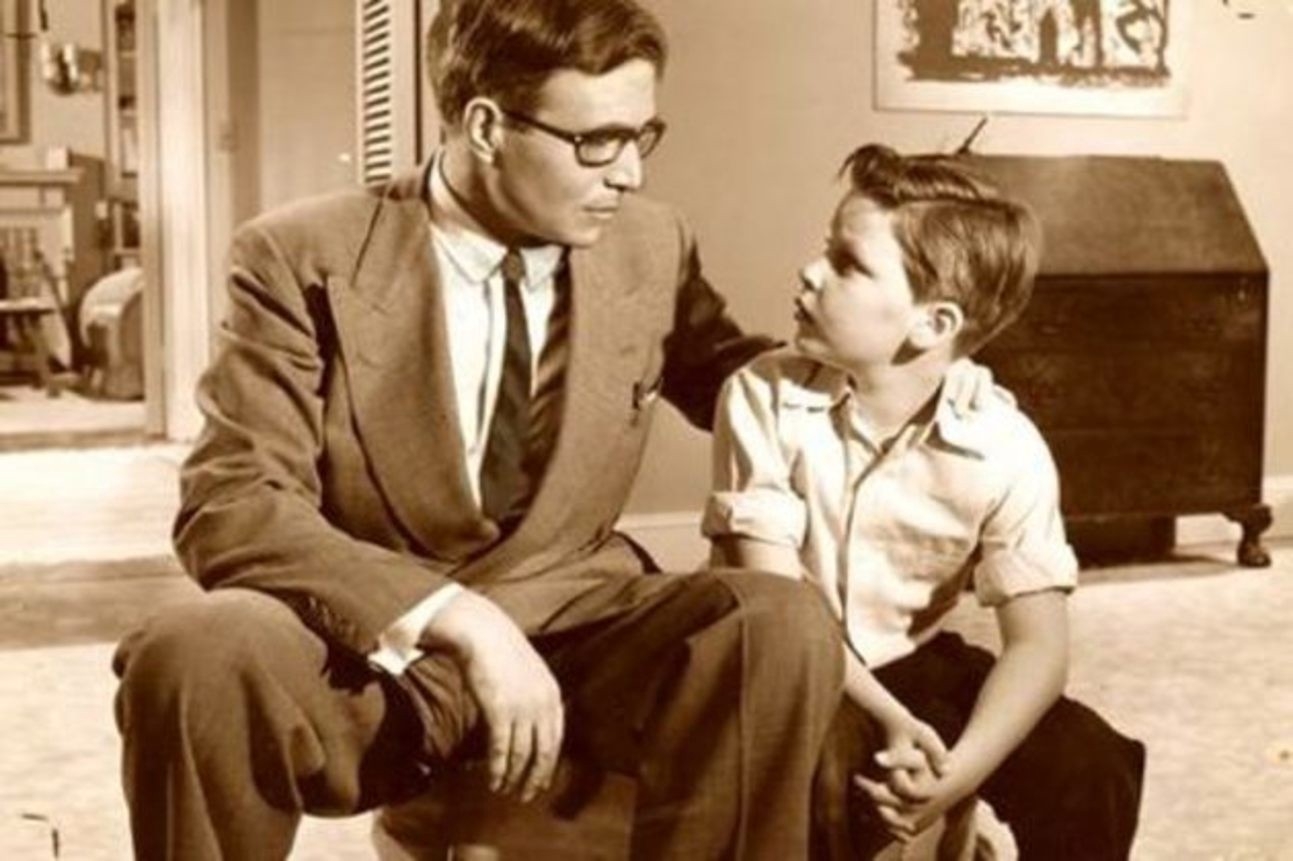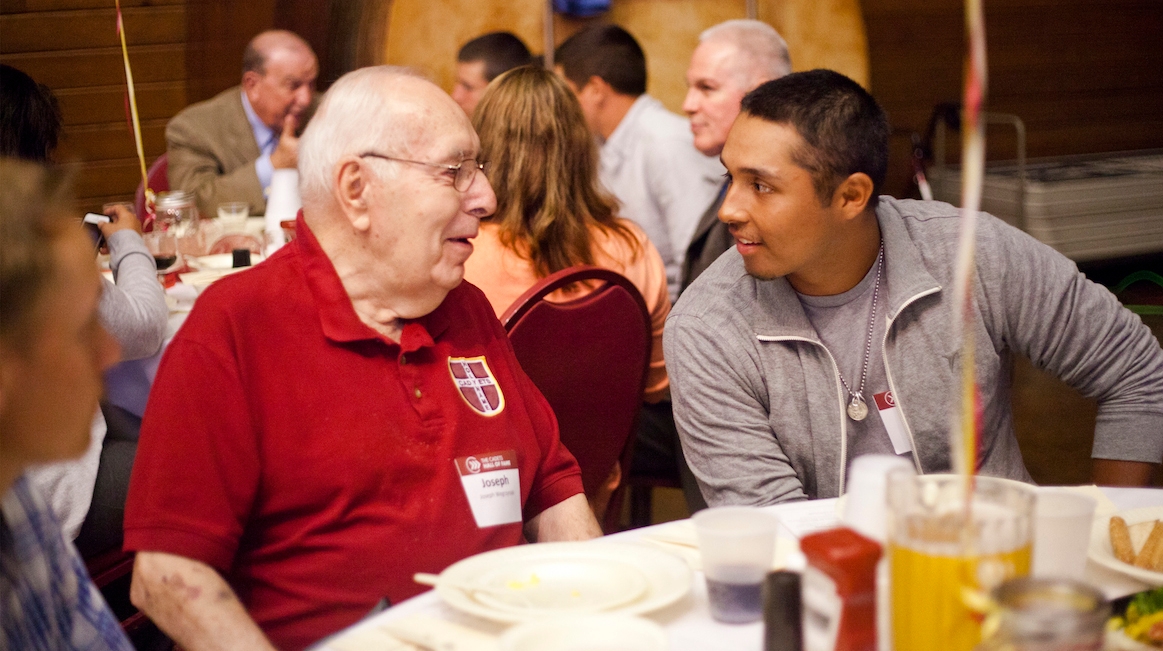Ok Boomer
Bringing intergenerational alumni together produces double the engagement

Ok, Boomer. What started as an innocuous Tweet has rapidly inflamed the Internet, exposing decades of unresolved generational controversy. Millennials want their older counterparts to cease their chiding about affording houses and settling down, while Boomers want their hard-earned life perspectives to be treated with respect. Though the uproar is a short-lived viral phenomenon, it is a powerful example of generational conflict—and the reasons why the young and old can have difficulty understanding one another.
Those upset by the recent controversy forget that generational conflict is far from new. In the 60s, student activist Jack Weinberg coined the popular saying, “Don’t trust anyone over 30.” The statement was quickly embraced by a generation of young people dissatisfied with the status quo established by their parents. The frustration of youth at the time was poured into powerful civil rights initiatives, such as the anti-war movement, the environmental protection movement, and pushes for women’s equality. Today, the dismissive “Ok Boomer” mantra seems like a twist of karmic revenge for the youngsters of the time—their beliefs have “Boomer-anged” back to bite them!

Though such generational quarrels may seem like a natural effect of a diverse society, they can have very real consequences. Older people are routinely discriminated against in the workplace, viewed as old-fashioned or less receptive to new ideas than their younger counterparts. Though these ageist beliefs have been proven to be more fiction than fact, the subconscious equivocation of “forward-thinking” with “younger” continues to make its mark upon society. More than 40% of employees in the tech industry report fearing they will lose their jobs due to their age, while 76% of older people believe it will take them longer than three months to find a new job due to their age. At the same time, the average age of a successful entrepreneur in the health, tech, and aerospace is 40—a far cry from the young college graduates who companies are predisposed to hire. Even Mark Zuckerberg notoriously stated that companies should fire all employees over the age of 30. Unsurprisingly, Zuckerberg did not resign and give up his reported average income of 9 billion dollars a year!
Furthermore, the perpetuation of ageism can have real effects on the health of older people.
Negative stereotypes about aging, such as those of older people being less capable or less healthy than younger people, both psychologically and physically affect the abilities of older people to lead healthy, fulfilling lives. The WHO declares that ageism can cause “cardiovascular stress, lowered levels of self-efficacy and decreased productivity.” Moreover, a study conducted in the American Psychologist showed that those who attributed disabilities such as arthritis to “old age” had significantly higher levels of heart disease and hearing loss compared with those who did not cite age as a factor.

However, the perception of age as a deficit or a hindrance is not universal. In many cultures across the world, elders are revered for their accumulation of knowledge and wisdom, holding greater status in society than those younger than them. Research shows that positive attitudes towards the elderly are correlated with collectivist cultures, in which members are more focused on family and social values and less on personal achievements and individual identity. In these cultures, many of which are found in Asian countries, younger generations are expected to honor and take care of their elders, who occupy the highest place on the societal totem pole. In Korea, children are responsible for throwing their parents a giant party for their hwan-gap, or 60th birthday, to celebrate their passage into old age. Such occasions are joyous events, intent on showing the merits of reaching old age and celebrating the wisdom accumulated. Similarly, in Japan, a country with the world’s largest senior population, people celebrate an annual “Respect for the Aged Day,” in which events from school performances to community gatherings are held to honor the elderly. In China, aging parents can even legally sue their children for failing to provide adequate emotional or material support to them.
In such cultures that focus on intergenerational unity, elders lead longer and more fulfilling lives than they do in more individualistic cultures—after all, loneliness and social isolation have been proven to be as detrimental to an aging person’s health as obesity. As these countries create an environment in which older people’s opinions and advice are cherished and heard, their average life expectancy skyrockets. Studies show that intergenerational communication induces numerous positive psychological outcomes, including reduced anxiety and increased self-worth for both young and old. Likewise, time spent with older generations improves mutual understanding and decreases generational stereotyping, leading to an environment in which both young and old can learn from one another’s perspectives and experiences.
Moreover, the discrepancy we see between the cultural treatment of aging may simply come down to our perception of the two types of intelligence—fluid and crystallized. Fluid intelligence is easily quantifiable and can be measured by an individual’s ability to solve problems quickly or recall as many items as possible. This kind of intelligence often worsens as a person ages, leading to the conception of older people as slower or more forgetful. Conversely, older adults are rich in crystallized intelligence, which stems from past experiences and prior learning. As a person’s accumulated knowledge and skill set grows over time, their crystallized intelligence naturally improves, allowing older people to reflect and analyze situations in a manner superior to younger minds.

So, we may (wrongly) misunderstand our elders. But as we age, we also fail to understand ourselves. Though we believe our past selves to be vastly different from who we are today, research shows that we also underestimate how different we will be in the future. “At every age, we think we’re having the last laugh, and at every age we’re wrong,” says Daniel T. Gilbert, one of the Harvard psychologists that explored generational mindsets. Though participants in Gilbert’s study reported a great deal of change over the last decade of their lives, they predicted their present and future identities to remain fairly stable. However, when asked to predict their personalities and interests in the next 10 years, participants of all ages consistently failed to take into account how much they would change, from misjudging the impact of their favorite bands to overestimating the permanence of their hobbies. No wonder generations are in conflict—we can’t even agree with our past selves!
As sung by Mike and the Mechanics in their song, “The Living Years,” “Every generation / Blames the one before / And all of their frustrations / Come beating at your door.” Generations may not always agree—but that’s okay. What matters is that all generations can acknowledge that they can learn from one another, old as well as young. Ok, Boomers—we’re listening. What do you have to say?
Stay ahead of the curve with CueBack
The world of advancement is changing. Don’t get left behind. Stay ahead of the curve with insights from forward thinkers in the industry who are paving the way for tomorrow’s advancement professional leaders.